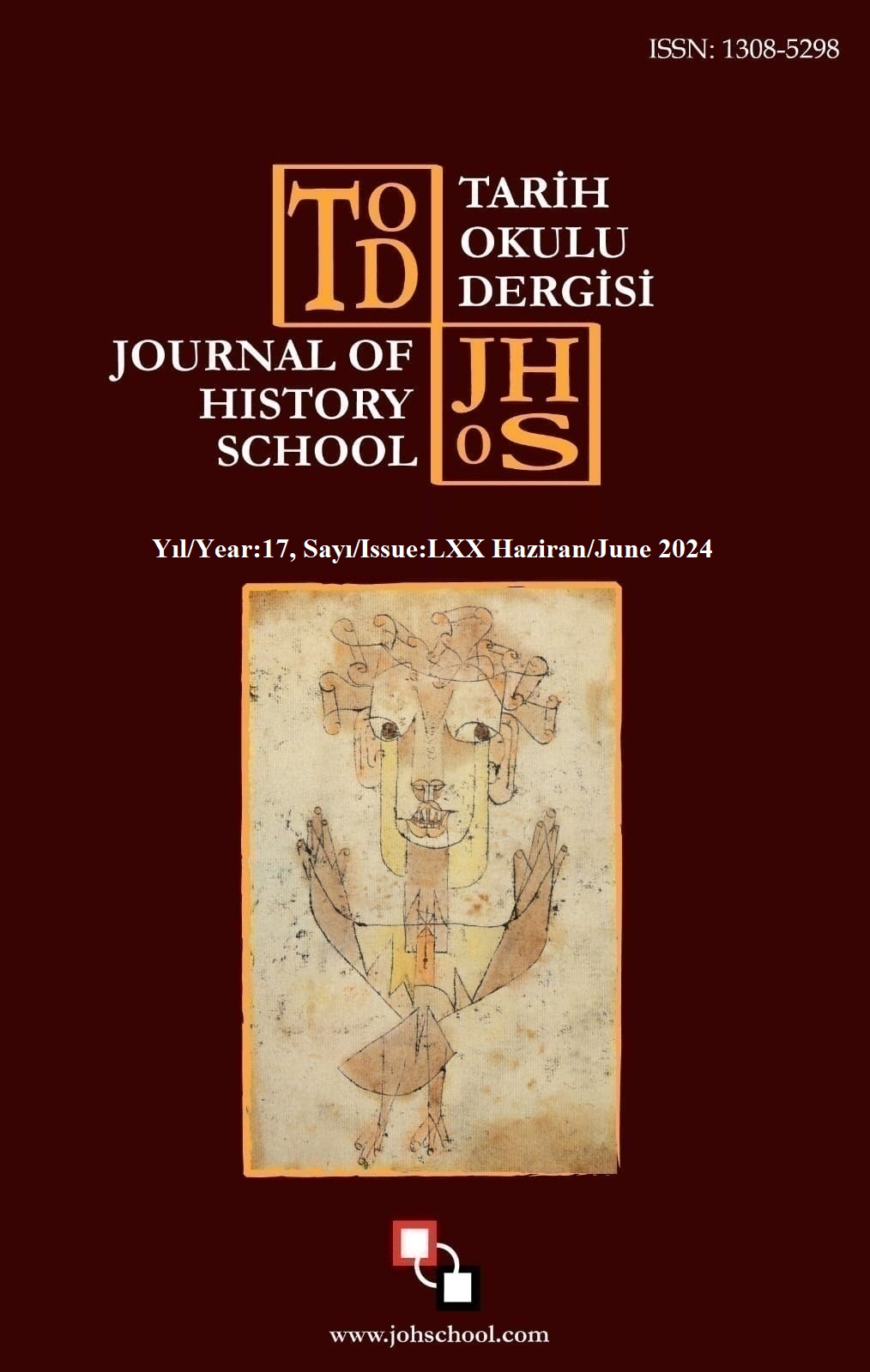YAŞLI BAKIMI VE EVDE HASTA BAKIMI ÖĞRENCİLERİNİN YAŞLILARA KARŞI TUTUMU VE YAŞLIYA BAKIM VERME İSTEKLİLİĞİ
Author :
Abstract
Bu araştırma, yaşlı bakımı ve evde hasta bakımı programını tercih eden öğrencilerin mezun olduktan sonra çalışma ortamlarındaki yaşlılara karşı tutumlarını ve yaşlılara bakım verme istekliliğini belirlemek ve etkileyen faktörleri incelemek amacıyla yapılmıştır. Kesitsel-Tanımlayıcı tipteki araştırma, Ocak 2023’te bir devlet üniversitesinin Meslek Yüksekokulu programında öğrenim gören Evde Hasta Bakımı ve Yaşlı Bakımı öğrencilerine uygulandı. Araştırmanın evreni 300, örneklemi ise 245 öğrencidir. Veriler, 17 sorudan oluşan “Kişisel Bilgi Formu”, “Yaşlıya Bakım Verme İstekliliği Ölçeği” ve “Yaşlılara Karşı Tutum Ölçeği” ile toplandı. Araştırmanın uygulaması için etik kurul onayı ve üniversite yönetiminden izin alınmıştır. Öğrencilerin sınıf durumu ile “Yaşlılara Karşı Tutum Ölçeği” toplam puan ortalamaları arasında istatistiksel olarak anlamlı bir fark olduğu bulundu (p<0.05). Cinsiyet, kardeş sayısı, daha önce yaşlı ile aynı evde yaşama süresi ve aile kurduktan sonra ebeveyn ile yaşamayı isteme durumu ile “Yaşlıya Bakım Verme İstekliliği Ölçeği” toplam puan ortalaması arasında istatistiksel olarak anlamlı bir fark olduğu bulundu (p<0.05). Araştırmaya katılan öğrencilerin yaşlılara karşı olumlu tutum sergilemelerinin yaşlıya bakım verme istekliliğini arttırdığı ancak orta düzeyde etkilediği bulunmuştur. Yaşlılara karşı tutum ve yaşlıya bakım verme istekliliğine yönelik daha olumlu sonuçlar elde etmek için yaşlı bakımına yönelik derslerin daha alt seviyedeki eğitim süreçlerinde verilmesi ve birlikte yaşamı desteklemek için yaşlıya yönelik sosyal desteklerin arttırılması önerilmektedir.
Keywords
Abstract
This research was carried out to determine the attitudes of the students who prefer the elderly care and home patient care program towards the elderly in their working environment after graduation and their willingness to care for the elderly, and to examine the factors affecting them. The cross-sectional-descriptive study was applied to Home Patient Care and Elderly Care students studying in the Vocational School program of a state university in January 2023. The population of the research is 300 and the sample is 245 students. The data were collected with the "Personal Information Form" consisting of 17 questions, the "Willingness to Care for the Elderly Scale" and the "Attitudes towards the Elderly Scale". Ethics committee approval and permission from the university administration were obtained for the implementation of the study. It was found that there was a statistically significant difference between the class status of the students and the total mean scores of the "Attitudes towards the Elderly Scale" (p<0.05). A statistically significant difference was found between gender, number of siblings, duration of living in the same house with the elderly and wanting to live with a parent after starting a family, and the total score of the "Willingness to Care for the Elderly Scale" (p<0.05). It was found that the positive attitudes of the students participating in the study towards the elderly increased their willingness to care for the elderly, but it had a moderate effect. In order to achieve more positive results in terms of attitudes towards the elderly and their willingness to care for the elderly, it is recommended that courses on elderly care should be given at lower levels of education and social support for the elderly should be increased to support living together.





